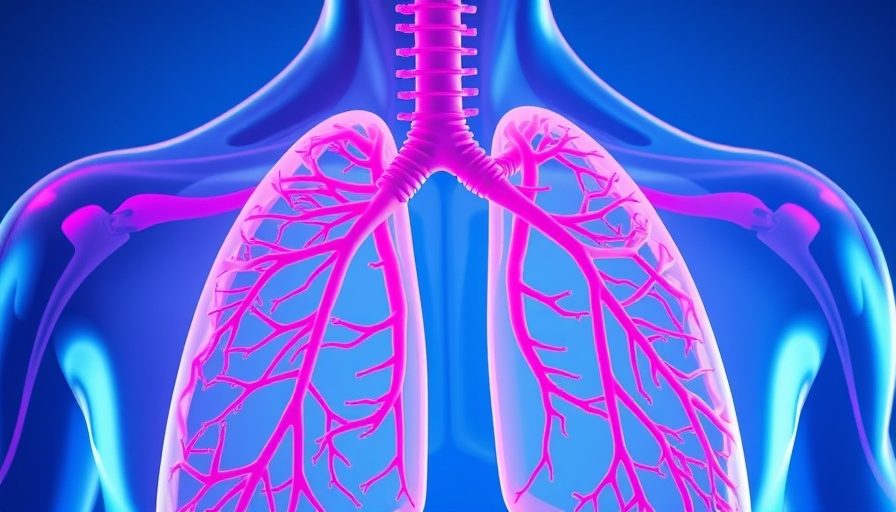
Identifying Exacerbation Risks in Bronchiectasis: A New Study
Bronchiectasis, a chronic lung condition characterized by the abnormal widening of the bronchi, has long been associated with recurrent symptoms that can severely impact patients' quality of life. According to recent research, certain symptoms may predict the risk of exacerbations, suggesting that proactive management could play a crucial role in patient care. This insight is especially important given the condition's complicated nature and the potential for serious health deterioration during exacerbation events.
The Role of Macrolide Therapy in Management
A significant finding from the study suggests an expanded role for macrolide therapy in the treatment of bronchiectasis. Macrolides, typically known for their antibacterial properties, are being acknowledged for their anti-inflammatory effects as well. Researchers indicate that these drugs could help mitigate exacerbations by addressing both bacterial infection and inflammation that contribute to worsening symptoms.
Understanding the Symptoms That Predict Exacerbations
Identifying which symptoms may signal an impending exacerbation is vital in improving treatment protocols. Common indicators include increased sputum production, changes in sputum color, cough frequency, and overall respiratory distress. Patients and clinicians must prioritize such symptoms to navigate the management of bronchiectasis effectively.
Historical Context of Bronchiectasis Treatment
Historically, the management of bronchiectasis has focused primarily on antibiotic therapy, physiotherapy, and bronchial hygiene. However, the recent emphasis on symptom prediction marks a shift toward a more personalized approach. This approach is aligned with contemporary healthcare trends that emphasize preventive care. The introduction of macrolide therapy into treatment protocols for those identified at risk of exacerbation enhances the evolution of bronchiectasis management.
The Future of Bronchiectasis Management: Personalized Medicine Insights
Looking ahead, the integration of machine learning and AI into the analysis of patient data could drive further customization in treatment plans. By leveraging emerging technologies, healthcare professionals may be able to predict exacerbation risks with greater accuracy, tailoring therapy based on a patient’s unique symptom profile and medical history. Such innovations could revolutionize how bronchiectasis is treated, potentially reducing hospitalizations and improving long-term outcomes.
Counterarguments and Diverse Perspectives on Treatment Approaches
While the study advocates for macrolide therapy, it is essential to consider differing viewpoints. Some medical professionals caution against over-reliance on macrolides due to potential side effects, including antibiotic resistance and gastrointestinal disturbances. Ongoing research is crucial to weigh the benefits against the risks, further honing effective treatment strategies tailored to individual patient needs.
The Emotional Impact of Bronchiectasis Exacerbations
Exacerbations can be emotionally taxing for patients and their families. The unpredictability of symptom flare-ups can lead to anxiety and stress, underscoring the need for efficient management strategies. Support groups and educational resources can empower patients, providing them with tools to navigate their condition more effectively and with a greater sense of control.
Actionable Insights for Patients and Caregivers
For patients with bronchiectasis or those caring for them, understanding exacerbation predictors is vital. Keeping a symptom diary can help track changes in health, enabling timely intervention. It is advisable for patients to consult healthcare providers about the suitability of macrolide therapy in their treatment plan. Engaging actively in discussions with medical professionals could pave the way for a more tailored and responsive approach to managing their condition.
Conclusion: The Path Forward for Bronchiectasis Management
The insights from the recent study demonstrate the promising direction for bronchiectasis management. As research continues to evolve, the integration of macrolide therapy in conjunction with symptom tracking may significantly enhance patient outcomes. For those affected by bronchiectasis, staying informed and actively engaging in their care can lead to better understanding and management of their health.
 Add Row
Add Row  Add
Add 




Write A Comment